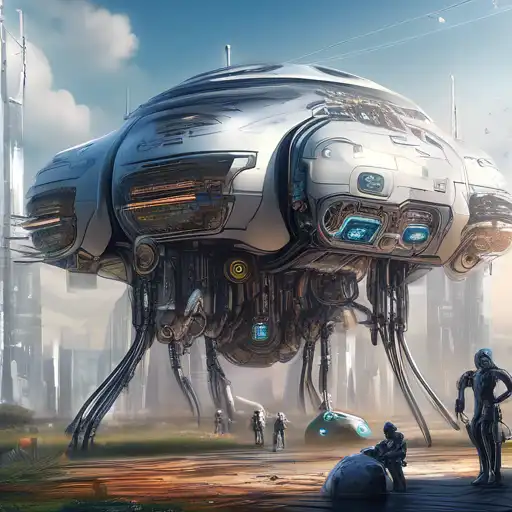Introduction to Artificial Intelligence's Evolution
Artificial Intelligence (AI) has transitioned from a futuristic concept to a cornerstone of modern technology. Today, AI is not just about robots or sci-fi movies; it's about real, impactful innovations that are reshaping industries, enhancing human capabilities, and solving complex problems. This article delves into the current state of AI, exploring its advancements, challenges, and what the future holds.
The Current State of AI
AI today is more accessible and integrated into our daily lives than ever before. From machine learning algorithms that power recommendation systems to natural language processing (NLP) enabling virtual assistants, AI's applications are vast and varied. Industries such as healthcare, finance, and education are leveraging AI to improve efficiency, accuracy, and outcomes.
Advancements in AI Technology
Recent years have seen groundbreaking advancements in AI. Deep learning, a subset of machine learning, has enabled computers to achieve human-like accuracy in tasks such as image and speech recognition. Meanwhile, generative AI is creating new content, from art to music, opening up unprecedented creative possibilities.
- Deep Learning and Neural Networks
- Generative AI and Creative Applications
- AI in Healthcare: Diagnostics and Treatment
- Autonomous Vehicles and AI
Challenges Facing AI Today
Despite its progress, AI faces significant challenges. Ethical concerns, such as bias in AI algorithms and the potential for job displacement, are hot topics. Additionally, the environmental impact of training large AI models is a growing concern, prompting a search for more sustainable practices.
The Future of AI: What to Expect
The future of AI is bright, with ongoing research aimed at making AI more generalizable, ethical, and sustainable. Innovations like quantum computing could further accelerate AI's capabilities, while policy and education will play key roles in ensuring AI benefits society as a whole.
As we stand on the brink of AI's next era, it's clear that its potential is only beginning to be unlocked. By addressing current challenges and fostering innovation, we can ensure that AI continues to serve as a force for good, transforming our world in ways we can only begin to imagine.
Conclusion
Exploring the future of artificial intelligence today reveals a landscape of immense potential and significant challenges. As AI continues to evolve, its impact on society, industry, and individual lives will only grow. Staying informed and engaged with AI's development is crucial for anyone looking to navigate the future successfully.
